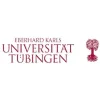Why Study in Germany?
Germany is one of the most acclaimed non-Anglophone countries in the world for its cars, sausages, beer, bread, castles, cathedrals, and football. Nevertheless, it is the free education that attracts every aspiring student who dreams to study abroad in Germany. Moreover, the number of international students in Germany is so high that thousands of them come from countries such as China, India, Russia, Austria, Italy, France, the UK, Ukraine, Turkey, and Bulgaria. Over the past few years, Germany has become very popular among international students from all over the globe. According to recent statistics, the number of international students has approximately reached 400,000. As a result, Germany is an ideal study destination for international students seeking higher education qualifications. In conclusion, if you are interested in studying in Germany, you should consult Germany education consultants who can provide you with all the necessary information and guidance. In order to plan your higher education in Germany, you should begin by selecting your preferred university and the study program that best suits your preferences and interests. So, if you’re interested in learning more about what you need to get started studying abroad, along with the correct application process, please reach out to the experts at Divine EAC.
Popular Universities in the Germany






Education system in Germany
Generally, there are two types of universities in Germany; private and public. It may surprise some to learn that public universities in Germany do not charge tuition fees, while private universities can be quite expensive. Approximately 400 public universities and 120 private universities are located in Germany. Additionally, many German universities adhere to the principle of ‘academic freedom’, which allows students to study at their own pace without being forced to attend fixed classes. If you would like to study abroad in Germany at a low cost and enjoy a stress-free lifestyle, an advisor can inform you of the most affordable places to study abroad.
Generally, a bachelor’s degree takes three to four years to complete, while a master’s degree takes two to five semesters to complete. As a result, you are awarded a master’s degree with 120 ECTS credits. The majority of these credits will be earned through coursework, modules, and exams, while the remainder will come from resource work and essays.
Types of Intakes:
- Summer (April) – popular deadlines for international students: 15th Jan
- Winter (Sept/Oct) – popular deadlines for international students: 15th July
Due to the fact that there are two study abroad intakes available, you should choose the one that best fits your preferences and requirements. It is unlikely that all students can be accommodated in a single intake, therefore these two intakes are offered. In addition, the class size is larger during the winter intake. Many professors begin their research during the winter break, which results in a large number of employment opportunities and assistantships. Extracurricular activities are also more prevalent during the winter months.
Regardless of any intake, visa approvals are required. Don’t miss your chance to study abroad if the courses to study in Germany of your choice are only offered during the summer! Apply as soon as possible!

University Categories
Research Universities
Several of these publications carry out original academic research. They offer master’s and doctoral degrees. They are also known as Universität.
Technical Universities
They are widely recognized for their excellence in the fields of science, technology, and engineering. Generally, they are referred to as Technische Universität.
Colleges of Art, Film & Music
Universities such as these provide assistance and guidance in areas related to creativity.
Universities of Applied Sciences
It is the objective of these universities to provide more practical education in the field of engineering, business, and social sciences. The majority of them have co-ops and partnerships with business organizations. These are also known as Fachhochschulen.
Study Abroad Programs in Germany
-
Medicine and Dentistry
-
Law
-
Industrial Engineering
-
Engineering (General)
-
Mathematics and Computer Science
-
Masters in Pharmacy
-
Natural Sciences (Pure Sciences)
-
Business and Economics
-
Architecture
-
Psychology
-
Earth Sciences
-
English Literatures and Cultures Masters
-
Languages, History and Cultures of The Middle East Masters
-
Egyptology Masters
-
Empirical Cultural Studies Masters
-
International Literatures Masters
-
Literary Theory Masters

To pursue any of these top courses, ensure to get in touch with overseas consultants at Divine EAC for more relevant information.
Admission Process to Study in Germany
The number of international students applying to Germany has increased significantly in recent years. It is because the industry has evolved and the education system is excellent. Furthermore, there are several universities that offer education to students for less than €1,000, making Germany one of the best countries for studying abroad. In order to be considered for admissions in Germany, you must meet certain criteria. For some students, receiving an acceptance letter from a German university is a dream turned into reality. Here is a step-by-step guide to help you understand what you need to do to be successful with your admissions in Germany:
- Entrance Tests: It may be necessary for you to take an entrance exam such as the GRE, TOEFL, SAT, ACT, IELTS, GMAT, etc., so please check the course requirements.
- School Leaving: A university entrance qualification is required to apply to a German university. Make sure that you possess a certificate of school-leaving or higher education that is required for further education. An educational course may be necessary if your previous education is insufficient.
- Know your Finances: It is necessary to display approximately 8700 euros plus tuition fees (if applicable). Therefore, you should be aware of that prior to applying for a study abroad program.
- Check DAAD: DAAD is a German academic exchange service with a reliable website. Using this website, you can check the validity of your education qualification for entering Germany. Currently, this site provides information about 80 countries.
- Check Anabin: For more information regarding how foreign credentials are assessed or whether your university is accepted in Germany, please refer to the Anabin website, which will provide relevant information on your eligibility. While the website is only available in German, you may be able to more easily understand it if you use Google Translate on Google Chrome.
- Aptitude Test: Aptitude tests are not required for all courses for admissions in Germany. Make sure you check the website of the university and course you are interested in. Furthermore, TestAS is a test that examines your language skills, questions about your subject matter, and your cognitive abilities. It costs approximately 80 euros to take the test. The overseas education consultants at Divine EAC can assist you in understanding the TestAS guide before moving forward.
- Language Check: Despite not being required, it is certainly advantageous to learn a bit of German in order to fit in with your surroundings. Be sure to check if the course you are interested in is taught in English before taking admissions in Germany.
- Application: A university application costs approximately 15 euros for each course. During the registration process, you will be required to upload transcripts containing details about your courses and subjects. The majority of universities accept transcripts in both French and English. Whenever possible, fill out the form months before your deadline since it is a lengthy process, and you may encounter new obstacles along the way. Winter semester deadlines are usually on 15th July, and summer semester deadlines are on 15th January.
Cost of Attendance in Germany for Indian Students
Tuition fees were revoked in 16 states in Germany in 2014, both for domestic students and for international students. In addition, the government of the Federal State of Baden-Württemberg still charges a tuition fee of approximately 1500 euros. There are several universities that offer lower tuition or no tuition at all. If you wish to know the total cost of studying abroad, speak to our Germany education consultants.
Almost all universities are required to charge a semester contribution, which amounts to approximately 250 euros per semester. The majority of universities charge students an additional administrative fee of approximately 50 euros per semester. For a single month, they require about 850 euros.
In Germany, students are also entitled to a number of concessions on the display of their ID cards, similar to those in the UK. The accommodation expense is likely to be the biggest expense for most students ranging between 210 euros and 350 euros. In addition to this, the health insurance coverage costs approximately 80 euros. As a result, you may spend a little over 800 euros per month. Consult our Germany education consultants for more information on the cost of living in Germany.
Not sure where to start?
VISA Process To Study Abroad in Germany
The German education system is widely known for its free education, however, visa regulations and university application procedures are not as lenient as would be expected in other countries. To begin with, the cost of the student visa is about 60 euros. For those who plan to study abroad in Germany, it is advisable to apply for a visa three months in advance. During the process of going abroad for studies, our professional Germany education consultants will also assist you with the visa application.
List of Required Documents
- Proof of sufficient funds to support oneself in Germany for a year (about 8700 pounds per month plus university fees).
- Academic transcripts, proficiency in either German or English, depending on the language of the course.
- Authentication of all documents required
- Health insurance certificate (80 euros per month)
- A copy of your criminal record must be provided.
- A well-filled out application
- Two recent photographs
- Letter of acceptance from the university
For how long can one stay in Germany after my course?
After graduation, international students with reliable residence permits can generally continue to work for about 18 months, especially if the job is in their field of study. Graduates from EU and EEA countries are also permitted to pursue employment opportunities without restrictions. Get accurate guidance and assistance from Divine EAC with our best Germany education consultants.
If you have worked in Germany for approximately two years, you may be eligible to apply for permanent residency. While it’s not essential, it is certainly beneficial to be able to speak German when seeking employment in Germany.
Top Scholarships in Germany
For international students who want to study abroad in Germany, the following scholarships are widely accepted:
-
GyanDhan Scholarship
-
DAAD Scholarship Programs
-
Heinrich Böll Foundation Scholarships
-
DeutschlandStipendium National Scholarship Programme
-
Konrad-Adenauer-Stiftung Scholarships in Germany for International Students

Work Opportunities in Germany
With a German student visa, international students who are planning to study abroad in Germany are legally allowed to work for 120 days or 240 half-days per year. However, these may vary depending on various factors such as the location, the type of job (if you need to hire additional personnel for the task), and others.
You must adhere to the following basic rules:
- It will be necessary for you to obtain a work permit from the Alien Registration Office (Agentur für Arbeits) and a financial officer if you intend to work. There will be a maximum number of working hours specified in the permit. The norm is that students are permitted to work approximately 20 hours per week during college hours and full time during vacations. If you are not from the EU, the rules may differ.
- The minimum wage is approximately 8.84 euros per hour (an increase was made in 2017).
- There may be fewer regulations if you are enrolled in a preparatory or language course. Furthermore, you will need explicit permission to work in such circumstances.
- If you have worked less than 5.50 consecutive days during a one-year period, you are not required to pay tax.
- Income tax is not imposed on individuals earning less than 450 euros per month. Despite this, some research assistants are exempt from paying taxes.
- It is recommended that students don’t work more than 20 hours per week, not because it is illegal, but because it will increase the cost of certain expenses.
- An internship on a university campus can be of considerable benefit to a student. Most often, longer working hours are permitted, and taxes may also be exempt.
Be aware that you may be removed from the country if you violate any federal laws or government policies. Therefore, do not even consider disobeying them. Our experienced Germany education consultants will further assist you in determining what your lifestyle may be like in Germany.
What Job Opportunities Can I Get While Working As A Student?
Work as a waiter, server, support member, etc., at bars, cafes.
English Tutor. If you’re perfect at the language.
Graduate / Research / Teaching Assistant
Internship related to your field, etc.
Job Opportunities in Germany After Graduation
There is no doubt that Germany is widely recognized for its robust automobile industry. As a result, obtaining a degree in automobile engineering or a field related to the automobile industry is of considerable benefit. Additionally, telecommunications, IT and computers, and finance are prospering industries. International students who want to study abroad in Germany can find a wide variety of job opportunities in Germany.
The average salaries offered for multiple positions are:
| Job Title | Average Annual Salary |
|---|---|
| Automotive Engineer | €50,000 |
| Automation Engineer | €47,000 |
| Data Scientist | €50,000 |
| Network Engineer | €54,000 |
| Senior Systems Administrator | €58,000 |

Frequently asked Questions
For some technical courses to study abroad in Germany, a minimum score of 6.5 is required. In addition, your IELTS score can be sent to five universities within one month of taking your exams.
Yes, you can, as several international degree programs are taught in English. Specifically, it is intended for international students who do not possess sufficient knowledge of German to be able to enroll in a full course taught in German. If you search for “international study programs in Germany” you will find a variety of English-language options to study abroad in Germany.
During their study period, international students may bring their parents to stay with them in Germany, subject to certain conditions. For more information, get in touch with our Germany education consultants.
Yes, health insurance is required to study abroad in Germany. Furthermore, international students are permitted to participate in the public health insurance system (statutory health insurance). Therefore, degree students under the age of 30 can register with a public health insurance provider rather than a private insurer.
It is a common misconception among international students that German is a difficult language to learn. In reality, it is not as challenging to learn as most people believe.
If you do not have a personal vehicle, traveling around Germany is quite easy. There is a very comprehensive and efficient public transportation system in the city. In general, public transportation in Germany consists of buses, trains, suburban commuter rail (S-Bahn), and subways and undergrounds (U-Bahn).
For international students studying in Germany, there are a number of scholarships available. Scholarships may be government-sponsored, such as the DAAD Scholarship or Erasmus+, non-government scholarships, and scholarships offered by German universities.
If you are a native English speaker, you are not required to provide either of these scores. To apply for a fully English program at a German university, you will need to take the TOEFL or IELTS. Furthermore, if you are applying for a postgraduate degree program and already hold an undergraduate degree from an English-taught course, you are not required to take TOEFL or IELTS.
If you are planning to study in Germany, you may find it beneficial to open a bank account in Germany. This is useful when you are applying for insurance or renting an apartment in Germany. However, there are some payments that cannot be made through a case. Therefore, you will have to debit the funds. For international students in Germany, the German Blocked Account is the most common type of account.



